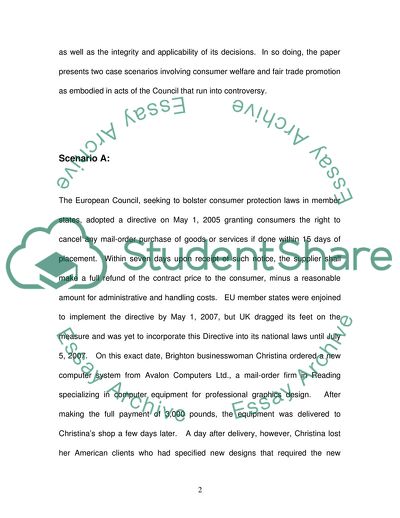Cite this document
(The Direct Effect of Directives and Majority Voting Rule on Decisions Assignment - 1, n.d.)
The Direct Effect of Directives and Majority Voting Rule on Decisions Assignment - 1. https://studentshare.org/law/1710387-eu-law
The Direct Effect of Directives and Majority Voting Rule on Decisions Assignment - 1. https://studentshare.org/law/1710387-eu-law
(The Direct Effect of Directives and Majority Voting Rule on Decisions Assignment - 1)
The Direct Effect of Directives and Majority Voting Rule on Decisions Assignment - 1. https://studentshare.org/law/1710387-eu-law.
The Direct Effect of Directives and Majority Voting Rule on Decisions Assignment - 1. https://studentshare.org/law/1710387-eu-law.
“The Direct Effect of Directives and Majority Voting Rule on Decisions Assignment - 1”. https://studentshare.org/law/1710387-eu-law.


